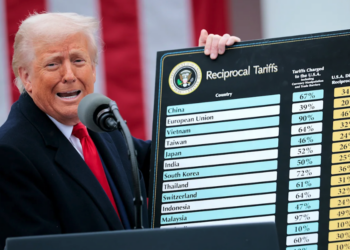U.S. President Donald Trump has revealed his intentions of granting a $25 billion bailout to U.S. airlines, as efforts are geared towards ensuring the industry remains afloat having been severely hit by the impact of the pandemic.
Trump in lieu of this reality urged Congress to expeditely approve the sum of $25 billion as payroll assistance to US Passenger airlines. He opined that it is possible to achieve this funding plan, albeit subject to the optimization of unused funds from prior coronavirus relief.
READ: Global air passenger slump to persist till 2023 – Moody’s
Trump’s new demand is sequel to his previous refusal to advance talks with congressional democrats over plans to spend at least $1.6 trillion in additional coronavirus relief funds. Subsequently, Trump reversed his stand and issued a call on Twitter, urging Congress to immediately approve $25 billion for Airline Payroll support.
This timely response is very much needed given that many U.S. airline firms have commenced mass retrenchment of workers, for example, American Airlines (AAL.O) and United Airlines (UAL.O) last week began laying off 32,000 workers, but had said they would reverse course if lawmakers reach a deal on a new government program to fund payroll costs.
READ: British Airways pilots accept 20% pay cut to end job losses dispute
Their renewed mass retrenchment might be due to the expiration of a previous $25 billion airline payroll support program of mostly cash grants approved by Congress in March, which got expired on Sept. 30.
In support of the recent call, the House Speaker, Nancy Pelosi expressed solidarity for a standalone bill to keep airline workers on the job if a broader package could not be reached.
READ: PenCom should pay 50% of workers’ pension at retirement – TUC
Commenting on the recent development, the U.S. Travel Association said “with millions of Americans suffering, it is woefully shortsighted to end relief negotiations” and added that “without immediate aid, 50% of all travel-supported jobs will be lost by December — an additional loss of 1.3 million jobs.”





















